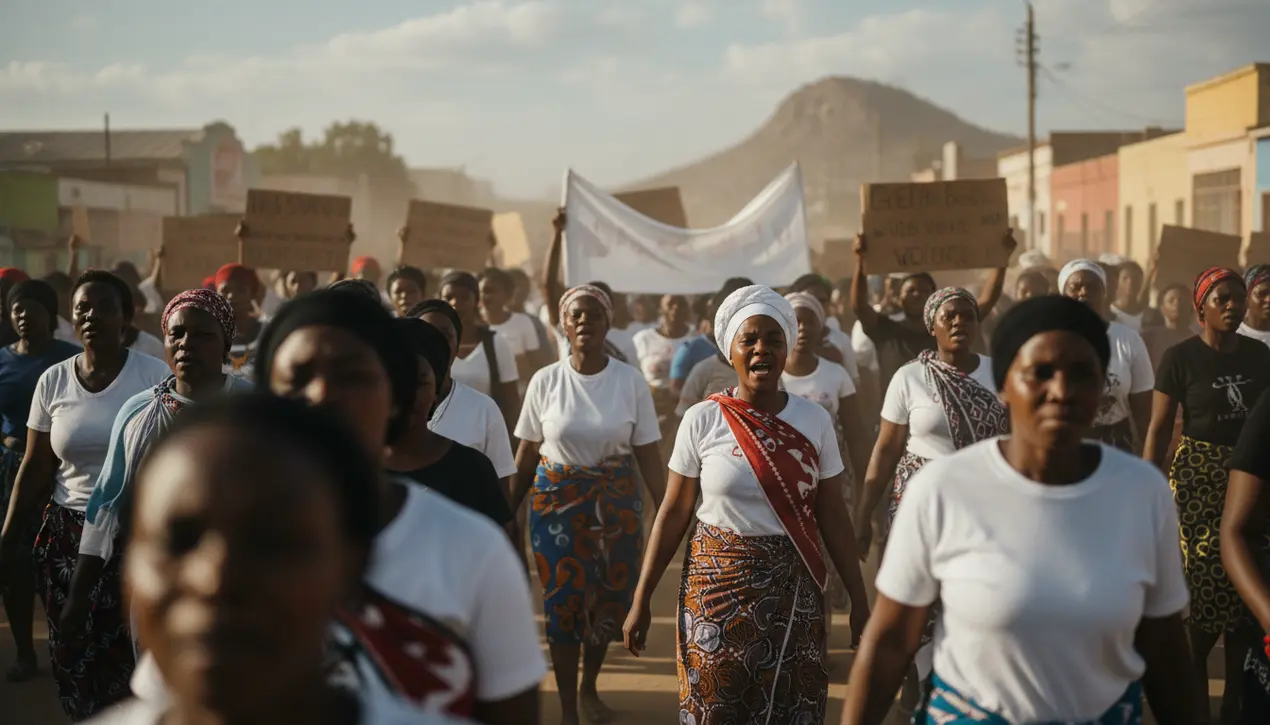
Politicsprotests & movements
South African Women Protest Gender-Based Violence and Femicide.
AN
Anna Wright
2 days ago7 min read4 comments
The statistics are a gut punch, a cold, bureaucratic ledger of terror that fails to capture the shattered lives behind the numbers: nearly 1,000 women reported raped and 137 murdered in South Africa in just the first three months of this year. This isn't merely a crime wave; it is a systemic femicide, a quiet war being waged in homes, on streets, and in communities across the nation, demanding a response that transcends mere policy and strikes at the rotten core of patriarchal entitlement.The sheer scale of the violence evokes the grim legacy of apartheid, but this time the enemy is not a segregated state but a deeply embedded culture of misogyny that treats women's bodies as disposable commodities. One recalls the powerful, haunting words of Commissioner Navi Pillay from UN human rights councils, who has long argued that such levels of gender-based violence constitute a crisis of humanity itself, a failure of the social contract.The protests now erupting, led by a coalition of grassroots organizations like the Total Shutdown Movement and supported by the formidable #AmINext campaign, are not simply pleas for safety; they are a collective roar of defiance, a demand for a fundamental reordering of society. The historical precedent is stark; from the courageous women who marched on the Union Buildings in 1956 to the contemporary activists, the fight for bodily autonomy remains a central, unfulfilled promise of South Africa's liberation.The consequences of inaction are already unfolding in real time—a generation of children traumatized, communities paralyzed by fear, and a profound distrust in a state apparatus where reported cases often languish in a labyrinthine justice system. Yet, within this bleak landscape, the analytical insight that emerges is one of profound, resilient power.The women on the front lines, their voices amplified by global feminist networks, are not just victims; they are architects of a new accountability, forcing a national conversation that can no longer be ignored. They are challenging not only the police and the courts but also the complicit silence of neighbors, family members, and a political class that has too often treated this epidemic as a secondary issue.The path forward is arduous, requiring not just more efficient policing but a radical, curriculum-wide overhaul of education, a bolstering of survivor-centric support systems, and an economic empowerment agenda that gives women the financial independence to escape abusive situations. This is the human perspective, the critical yet empathetic breakdown of a national shame that, until it is confronted with the full force of political will and social transformation, will continue to bleed the soul of the nation.
#gender violence
#South Africa
#protest
#women's rights
#murder
#rape
#featured
Stay Informed. Act Smarter.
Get weekly highlights, major headlines, and expert insights — then put your knowledge to work in our live prediction markets.
Comments
Loading comments...
© 2025 Outpoll Service LTD. All rights reserved.